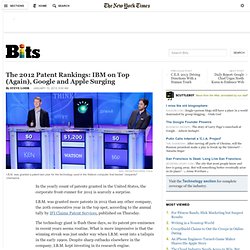

Patent Pros & Cons. Trying to decide whether or not to file a patent on an idea can be overwhelming for those unfamiliar with patents and the process.

Often, good ideas go unpatented because of lack of enthusiasm from friends, misconceptions about patents, or intimidation about the cost. This page should help dispel some of the mystery surrounding patents and allow you to make a better informed decision on whether or not to apply for a patent. We’ll start with the supportive arguments: Pros Keep others out of the market Restrict competitors Revenue from licenses or sale Retain the right to practice the invention Give your product credibility Market yourself Keep others out of the market – First and foremost, a U.S. patent allows its owner to exclude others from making, using, selling, offering for sale, importing, or exporting an invention included in the patent’s claims for a definite amount of time in the United States.
Another option is to sell a patent instead of licensing it. Cons Cost Liability. Everything Is A Remix: Intellectual Property & Patents Are Broken « David Michaelangelo Silva. Everything Is A Remix: Intellectual Property & Patents Are Broken Everything is a Remix: System Failure, a video by Kirby Ferguson, is an eye opening illustration of the current struggle with intellectual property.

In the video, Kirby argues that people have evolved to learn from each other and to improve upon our own advancements. The idea is that knowledge itself has evolved much like a species – over time it mutates and transforms into better versions of itself. This has worked for us for thousands of years as we have evolved from our humbling roots to rule the earth as we do now. According to the video though, we are now reaching an inflection point where, if we do nothing, the systems designed to protect IP may stifle innovation at a fundamental level. The video “Everything is a Remix” which can be found here speaks to the absurdity of today’s intellectual property disputes. The video illustrates the absurdity of owning ideas. Like this: Like Loading... The 2012 Patent Rankings: IBM on Top (Again), Google and Apple Surging. Seth Wenig/Associated PressI.B.M. was granted a patent last year for the technology used in the Watson computer that bested “Jeopardy!”

Champions. In the yearly count of patents granted in the United States, the corporate front-runner for 2012 is scarcely a surprise. I.B.M. was granted more patents in 2012 than any other company, the 20th consecutive year in the top spot, according to the annual tally by IFI Claims Patent Services, published on Thursday. The technology giant is flush these days, so its patent pre-eminence in recent years seems routine. What is more impressive is that the winning streak was just under way when I.B.M. went into a tailspin in the early 1990s.
Google and Apple, rivals in the smartphone patent wars, were the big movers. Last year, Apple was awarded 1,236 patents, or 68 percent more than in 2011. “Google and Apple are clearly taking intellectual property very seriously, and playing to win,” said Mike Baycroft, chief executive of IFI, a patent research firm. Google. Patent. Urkunde zu einem US-Patent Ein Patent ist ein hoheitlich erteiltes gewerbliches Schutzrecht für eine Erfindung. Der Inhaber des Patents ist berechtigt, anderen die Nutzung der Erfindung zu erlauben oder zu untersagen. Das deutsche Wort wurde im 17. Jahrhundert aus dem französischen patente („Bestallungsbrief, Gewerbeschein“) entlehnt. Dieses ist gekürzt aus lettre patente („offener Brief“) und geht auf das lateinische (littera) patens („offener (Beglaubigungs-)Brief des Landesherrn“) zurück. Geschichte[Bearbeiten] Rechtsfamilien[Bearbeiten] Deutscher Rechtskreis[Bearbeiten] Ökonomische Analyse[Bearbeiten] Der Patenteigner hat das Recht, eine Nachahmung und Nutzung seiner geschützten Erfindung für einen bestimmten Zeitraum zu verhindern.
Das grundsätzliche Problem, das der Patentschutz lösen soll, ist Marktversagen, das sich aus der positiven Externalität von Forschung ergibt: In der Regel liegt der soziale Nutzen einer Erfindung deutlich über dem privaten Nutzen. Innovationsraten[Bearbeiten]